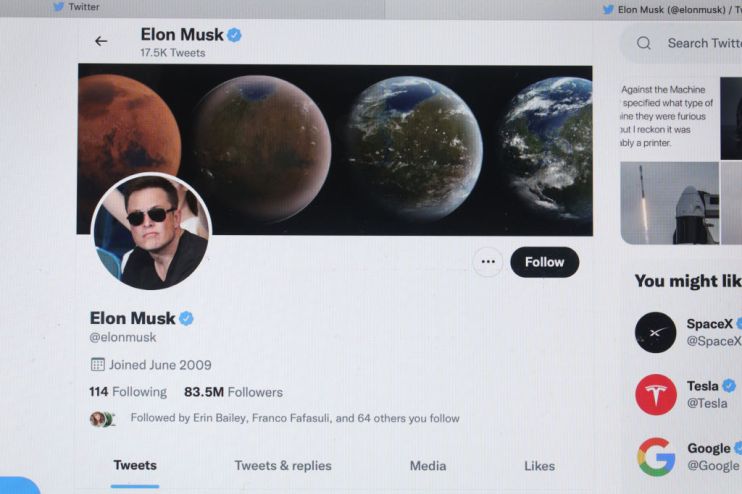Elon Musk’s Twitter deal will spur on efforts to censor online speech – not halt them

If Twitter turns into a free speech-centric platform, lawmakers and regulators will be emboldened to take greater action against offensive content.
On Monday, Twitter accepted Elon Musk’s offer to purchase the social media site for $54.20 per share, a move that will take the company private and enable the tech billionaire to incorporate his own ideas into the platform.
Musk has already expressed interest in making Twitter’s algorithms open-source, reducing content moderation practices, and tackling spam. The impact of this takeover agreement remains to be seen, but the business community should keep a watchful eye on how lawmakers respond to this $44bn acquisition.
The Tesla boss has a habit of attracting attention no matter what he does, from starting his own space race to announcing the electric car company would accept bitcoin. The Twitter deal is the latest in the Musk saga. But the deal also comes at a pivotal moment for content moderation and antitrust reform. Musk’s acquisition of Twitter demonstrates that, contrary to popular belief, social media companies can be held accountable for their controversial policies by the free market – rather than government intervention.
Twitter has been accused of both not censoring enough and over censoring by both sides of politics.
For years, American lawmakers have argued that websites like Twitter censor too much content and, without legislation, the company would continue to discriminate and unduly shape the online discourse. Yet, Musk, a free speech absolutist, has promised to correct this policy. In a press release, he said that “free speech is the bedrock of a functioning democracy, and Twitter is the digital town square where matters vital to the future of humanity are debated.”
Outside the United States, the conversation is centered around inadequate – rather than excessive – content moderation practices. To that end, there are lingering questions as to how Musk’s vision for a free-speech haven will be affected by the proposed Online Safety Bill and the EU’s Digital Services Act, both of which would mandate that Twitter proactively review and remove abusive material.
If Musk fully implements his proposed ideas, it will inevitably run afoul of these laws and subject the company to hefty fines. As MP Kristy Blackman noted, “the Online Safety Bill and Elon Musk’s reported moderation-free plans don’t seem to be terribly compatible.”
The takeover agreement underscores the unpredictability and transience of these firms. For those who believe that there is too much censorship, this business transaction quickly corrects an issue that lawmakers were never able nor suited to address. As we now know, Twitter – which is often lumped into the ambiguous category of “Big Tech” – was not an unassailable, market-entrenched giant that could indefinitely operate with unfavorable policies. There have even been some sceptical suggestions Musk’s deal was designed to make a point about online regulation. It has emerged it would cost Musk $1bn to back out of the deal – small change for the Tesla billionaire.
It is inevitable that the Musk-Twitter deal will impact the direction of the online safety debate. If offensive and objectionable content runs rampant on the platform, lawmakers won’t miss the opportunity to suggest unwarranted reforms. In attempting to build a safe-haven free from moderation, Musk could spur on the overzealous moderation he seeks to shun.